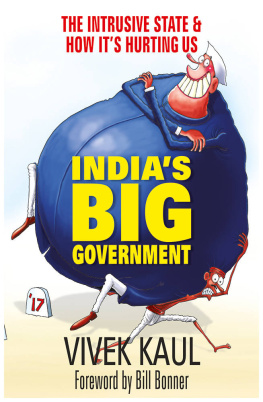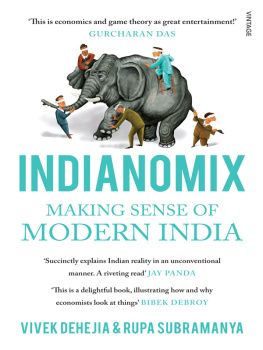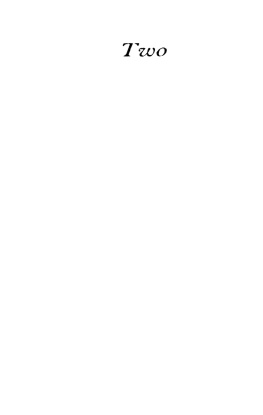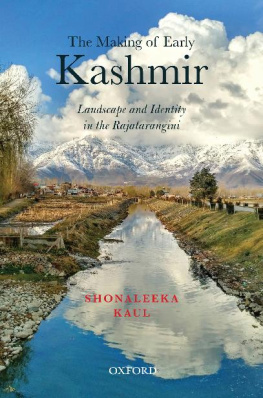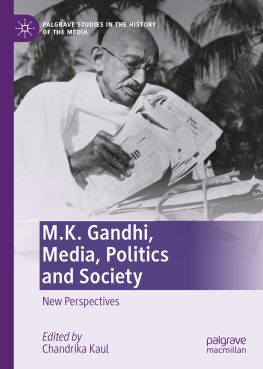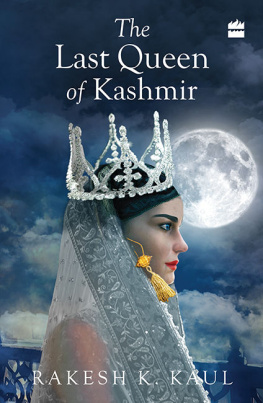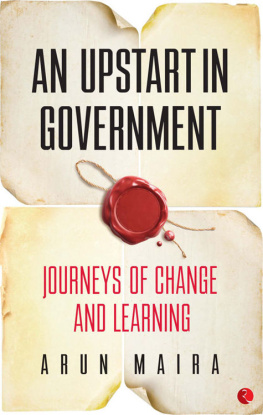Indias Big Government
The Intrusive State and How Its Hurting Us
Vivek Kaul
Equitymaster Agora Research Private Limited
Published by Equitymaster Agora Research Private Limited.
103, Regent Chambers, Above Status Restaurant, Nariman Point,
Mumbai - 400 021. India Telephone: +91-22-6143 4055 Fax: +91-22-2202 8550.
Email: .
CIN:U74999MH2007PTC175407
Indias Big Government: The Intrusive State and How Its Hurting Us
Copyright@2016, by Equitymaster Agora Research Private Limited
All rights reserved. No part of this publication may be reproduced or distributed in any form or by any means, electronic, mechanical, photocopying, recording, or otherwise or stored in a database or retrieval system without the prior written permission of the publisher.
Information contained in this work has been obtained by Equitymaster Agora Research Private Limited from sources believed to be reliable. However, neither Equitymaster Agora Research Private Limited nor its author guarantee the accuracy or completeness of any information published herein, and neither Equitymaster Agora Research Private Limited nor its author shall be responsible for any errors, omissions or damages arising out of this information. This work is not personalized investment advice nor any advisory services are being rendered through this work. If required, it is recommended to consult an appropriate investment adviser or financial planner.
SEBI (Research Analysts) Regulations 2014, Registration No. INH000000537
Cover Design and Cartoons: Manjul
Printed at: Kaleido Graphics, Mumbai email:
Visit us at: www.equitymaster.com
Dedicated to my Grandparents
Rupa and Soom Nath Kaul
Prabha and Triloki Nath Raina
CONTENTS
FOREWORD
I keep Vivek Kauls trilogy on Easy Money on my desk. Its all there: the fullest, most complete account of the rise of modern finance that I have seen anywhere.
Of course, money is inseparable at least in the modern world from government. The state creates and controls the money system, and uses it for its own purposes. So, it was perfectly foreseeable that Viveks bold exploration of the financial world would lead him to the shores of politics. And it is not at all surprising that he should find there the same sort of illusions, larcenies and vainglorious ambitions that he discovered in the world of money.
Similarly, he goes about his surveying with an open mind and great energy. And similarly, he leaves the reader with a fuller, richer understanding of his subject. He tells us about government-made condoms, job programmes that kill employment and educational projects that reduce learning.
I can add nothing to it, especially since it concerns the Indian government, about which I know little. But while I can go no deeper, I can broaden the perspective.
Government needs to be understood in broader terms. It is not a fixed, well-defined thing, but a dangerous and volatile fluid that leaks into the economy and society and can poison them. First, the vapours make people giddy when thinking about the possibilities. With the government and its money behind them, they think they can do almost anything. Then, they go a little mad, undertaking projects that ought to be left alone and mismanaging those that should do well. And finally, they end up with a godawful mess and a terrible headache.
And it doesnt seem to matter what you call your government, or how many people you have involved in it.
If you lived in a small island community that functioned as a genuine democracy where everyone voted on practically everything it might be an illustration of Hillary Clintons famous humbug, that the government is all of us.
Normally, the number of people who actually govern is small. It is never all of us. If it were, it would lose its meaning, since the governed and the governors would be the same people; the governors would be governing only themselves.
Instead, some people run the government. The rest are governed by them. But, on our little enchanted island, since everyone participates in governing, youd say that 100% of the population was governing. Thus, the yoke might be remarkably light; when people govern themselves, they tend to go easy. It would probably be essentially a consensual society in which people get along by going along, talking through differences and agreeing on compromises. The size of the governing class, therefore, may have little to do with the amount of governing going on.
The standard deceit of Leftist revolutionaries is inclusivity. They say they aim to make the governing class larger, with a government which is under the control of the people, or at least the proletariat, not the few, powerful, rich insiders. Even the founders of the American republic promised a government of, by and for the people.
Then, they discover that you cant make an omelette without breaking some eggs. And when the eggs resist, you need to use more and more force to force your model society on the community. You start cracking the skulls of your opponents, and soon, idealism turns rapidly into totalitarianism.
Heavy, totalitarian control can be achieved with a small, visible government. Imagine another little island, across the straits. It might be like an efficiently run prison. There may be only one prison guard for every hundred people on the island. He might be assisted by other prisoners, who did his bidding, hoping to get an extra crust of bread in return. The government, you might say, is only 1% of the people. It is small. Its rules may be very few.
And yet, the guard would be backed by a whole brigade of enforcers the police, the army, armed householders and the security industry with the prisoners moves carefully regulated and tightly constrained. From these examples, we conclude that neither the form nor the size of government is directly or easily connected to the real amount or nature of governing. A dictator could be a hands-off, laissez faire , live-and-letlive kind of guy. A democratically elected assembly could attempt to govern every aspect of our lives.
For these reasons, I propose to widen the description of government beyond the number of people employed in the public sector or the ostensible type of decision-making process. Instead, we should look at the extent to which the society and its economy are in thrall to politics as a truer measure of government.
There are only two ways to get what you want in a community. Give and take; or just take. You either work, add value, negotiate and trade; or you pull out a pistol.
Its either markets; or its politics. People are all, to some degree or other, as capable of politics as they are capable of murder. Some are prone to it. And sometimes, a whole society gets taken over by it.
Government is the only institution that can pull out a pistol and get away with it. It asserts a monopoly on the use of force within its territory; anyone using force or fraud without its authorisation is an outlaw. Politics determines by whom, and how, that monopoly on force is used. The more politics in a society, the more wealth changes hands without the give and take that characterises a market system.
This helps to explain how governments that have been on paper relatively stable as a percentage of GDP or population have come to do so much governing. In short, in India, as elsewhere, the governors team up with local insiders and crony industries to extend the reach of politics.

